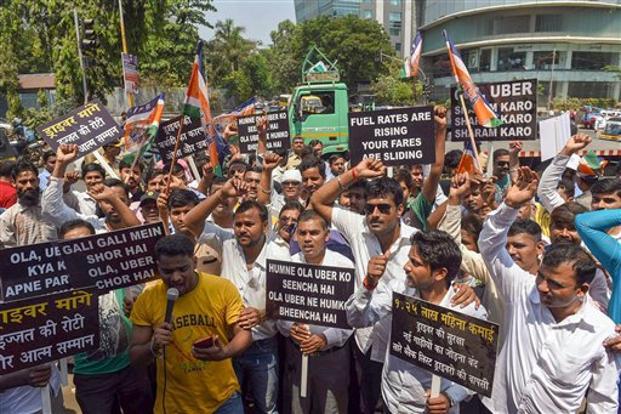Drivers of taxi aggregators, Uber and Ola, will protest across several Indian cities, demanding a grant of city taxi permit, safety measures and curtailment in commissions charged by the companies. The strike comes amid rising fuel prices and will take place in Delhi, Kolkata and Mumbai on July 9- 10.
Drivers say that fuel prices have increased by 20% while the cab fares are stagnant, making it harder for them to earn a decent living despite working longer hours. Drivers are also seeking a bigger share of income and incentives from cab companies. They want the companies to provide them medical insurance and accident claims to ensure their protection during rides.
In the last one year, Ola and Uber ride prices went up nationally by 10-15%. However, the incentives for drivers went down by 30% during the same time. These trends, along with the rising fuel prices and the falling value of the Indian rupee, have been a blow to the income of drivers.
This is not the first such strike by the drivers. In March 2017, thousands of independent drivers in Mumbai took to the streets against the companies’ policies. Organizations such as the Mumbai Taximen’s Union also participated in that strike. Their main demand was a guaranteed business of 125,000 rupees per month per driver, reinstatement of blacklisted drivers, and removal of company-owned cars. The strike later spread to other cities such as New Delhi, Bengaluru and Pune.
Kamal Jeet Gill, president of the Sarvodaya Driver’s Association of Delhi told Peoples Dispatch companies need to provide city taxi permits to drivers. “Drivers are demanding that company should lower the commission charge from 45% to 10%. And they should reconsider their assurances on Inter-State migration, which means they should blacklist vehicles which ply in the capital and come from neighbouring States such as Haryana and Punjab. If this rule is applied in other locations, why are vehicles being allowed to run in Delhi-NCR that doesn’t have the permit of Delhi. Besides, when the base fare for autorickshaws (three-wheelers) continues to be 10 rupees per kilometer, why it is just 6 rupees per kilometer for Ola and Uber drivers?” he asked.
“Last year, more than 19 drivers were murdered in the Delhi region during the course of their work. Many more drivers are harassed often,” Kamal added.





